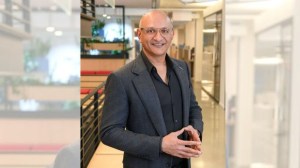By: Sugandha Mukherjee
What if living longer isn’t about reaching 100—but feeling (and looking) 40 at 70? As the science of ageing evolves, a growing number of people are turning to fasting regimes, wearables, red-light therapy, and mitochondrial skincare to extend not just their years, but the quality of them. A movement once confined to biotech labs and Silicon Valley biohackers is now taking root in everyday lives—from Tier-1 cities to WhatsApp wellness groups.
Globally, the longevity and anti-senescence therapy market is expected to reach $44.2 billion by 2030, as per Allied Market Research. In India too, the longevity movement has found fertile ground, albeit with its own flavour. In metros like Bengaluru, Mumbai, and Pune, wellness routines inspired by both Ayurveda and biohacking are becoming aspirational—think jeera water followed by a red-light therapy session and a carefully timed intermittent fast.
“From a medical perspective, healthy longevity is not just about adding more years to life,” says Dr Manisha Arora, director, internal medicine, CK Birla Hospital, New Delhi. “It’s about ensuring that those years are lived in good health, free from chronic diseases and disabilities,”she adds.
The Bryan Johnson effect
Fuelling the longevity fire is the rise of ultra-disciplined biohackers like Bryan Johnson, the American tech millionaire who has spent millions on anti-ageing experiments — from transfusions using his 17-year-old son’s blood to a strict vegan calorie-restricted diet, MRI scans, and dozens of daily supplements. He claims to have reversed his biological age by five years.
In India, Johnson’s regime has become a talking point among longevity enthusiasts. While a few are copying it entirely, elements like bio-age testing, red-light therapy, and fasting-mimicking diets have filtered down to wellness clinics and lifestyle influencers.
But experts are wary of what Dr Arora calls “cherry-picked science sold with glossy marketing.” “Following diets based on unrealistic pomises can lead to disappointment, frustration, and even depression,” she says.
The fads that follow
Among the most popular trends is intermittent fasting, particularly the 16:8 (fasting for 16 hours and restricting food intake to 8 hours) and 5:2 routines (500-600 calories diet twice a week), widely seen as metabolic resets. The fasting-mimicking diet, developed by Dr Valter Longo in the US, has also gained traction for offering the benefits of fasting without full abstinence.
“These diets can lead to nutritional deficiencies, particularly in essential vitamins and minerals, and may disrupt the body’s delicate balance of macronutrients and micronutrients,” warns Dr Arora.
Other trends include red-light therapy for mitochondrial health, cold plunges to reduce systemic inflammation, and supplement stacks, including NMN (nicotinamide mononucleotide), resveratrol, magnesium threonate, and even metformin, an anti-diabetic drug used off-label as a longevity agent.
Longevity meets aesthetics
But longevity isn’t just about how the body functions, it’s also about how it looks. In urban India, dermatology clinics are now promoting “skin longevity” packages that combine injectables, nutraceuticals, and laser therapies. Social media, with its barrage of before-and-after reels, has only heightened the pressure to “look young” as a marker of vitality.
“There are not just long-term repercussions but short-term as well,” says Dr Mansak, consultant dermatologist at Fortis Hospital, Vasant Kunj, Delhi. “The most important thing to understand is that the chase of such misleading activities signals a broken understanding of the human body and health altogether.”
She warns that many procedures and products touted for anti-ageing are not designed for Indian skin
types. “Modalities like lasers or chemical peels that work on Caucasian skin often don’t work in our population subset, which has a high tendency to develop hyperpigmentation,” she says. “Melanin is protective. More tampering means more barrier damage and more complications.”
Dr Mansak is also concerned about the unregulated rise of over-the-counter protein and collagen supplements, which, she says, can have long-term impacts on organs like the kidneys and liver.
Of late, she observes, the anti-ageing market has rebranded itself as “longevity science”, a shift she finds troubling. “It causes a lot of undue hype, scant science, false hopes, and a flawed understanding of how our body systems like DNA and telomeres are impacted. Desperation drives this, fuelled by influencers and sponsored content,” she adds.
While red-light therapy is often marketed as a panacea, she cautions that “home-care delivery systems of such light therapy must never be done without monitoring. We see far more complications now as a result of the anti-aging boom”.
As for trends like skin cycling or skin fasting, she is blunt: “It’s best not to tamper with the skin. Everyone’s body and skin is different. What works for one won’t work for another.”
For Dr Mansak, the path to healthy skin isn’t through shortcuts. “Having healthy skin is not about what is done to it, but about keeping the mind-gut-skin axis healthy. Supporting treatments with any modality requires a thorough consultation. Addressing hormonal and metabolic health, practising digital hygiene, and paying attention to a healthy sleep cycle is invaluable.”
A cultural & clinical shift
Experts agree that longevity is no longer the domain of geriatricians or cryonics labs. It’s now slowly becoming a part of everyday conversations, driven by curiosity, social comparison, and a desire for control over one’s future.
The pandemic reminded many of the unpredictability of life. In its wake, the pursuit of healthspan feels both empowering and essential. Still, the longevity movement remains deeply unequal — its tools and treatments are accessible mostly to the privileged.
But its cultural footprint is expanding. As one Delhi-based lawyer put it: “I’m not afraid of dying. I’m afraid of spending the last 20 years of my life in a chair.”








